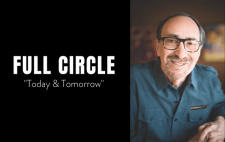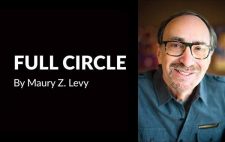For three whole days, days that ran into nights that ran into days, I was a part of history. Only no one knew it at the time.
This was the summer of ’69, a summer that sizzled, a summer that no one would ever forget. The first man landed on the moon. The Beatles gave their last public appearance. Richard Nixon had just become president. Teddy Kennedy drove his car into a pond. A cult led by Charles Manson killed five people. And Wal-Mart was born.
And then there was Woodstock. You remember Woodstock, the three days that changed the world. But a mere two weeks earlier, the first weekend of August, I and 100,000 of my closest friends gathered in Atlantic City for what would be, for two weeks anyway, the largest music festival ever held.
There were no horses at the Atlantic City Racetrack that weekend. There was a lot of music and there were a lot of things for sale, many of them legal. You could get a half-cooked hot dog for 40 cents. For a buck, you could buy a T-shirt with the red fist of the revolution brandished on the front.
Before the gates opened, those who said they wanted a revolution would jump the fence and make a mad run through the infield. Hundreds would follow, maybe thousands. They would rip off their clothes and jump in the lake. Some would leap to the stage, where they would be shoved off by burly bodyguards who looked like they drove in on Harleys.
It wasn’t until Sunday night that Little Richard would bring fans up on the stage, and he would shake and they would rattle. By Sunday, they had taken over the track like Russia took Austria. The track would go quietly.
This whole thing, this entire Atlantic City Pop Festival, was not so much a battle over music as it was a victory for a way of life. Sure, you couldn’t avoid the music, because there was Iron Butterfly and Jefferson Airplane and the Chambers Brothers, and Booker T. and Chicago and Creedence and B.B. King and the Birds and Joe Cocker and Canned Heat. And Janis Joplin. One by one, they came on and pounded the acid of it into your head so you just couldn’t turn it off.
But when a beautiful artist like Joni Mitchell came on, armed with only an acoustic guitar and a gentle piano, it felt like she was dropping pennies in the mud. The people didn’t want to be talked to. Joni Mitchell did four songs and then walked off the stage angry because the crazies in the crowd, almost all 100,000 of them, were too busy flipping Frisbees to care.
It had become a year of passages, the year we all grew up together. I got my first job. We had our first kid. I traded in my British racing-green Mustang for a four-door Buick. I stopped buying my clothes at an Army-Navy store and started wearing sport jackets and ties. I paid a guy 50 cents to shine my shoes once a week. Yep, we had grown up. And now there was no turning back. Except for this one wild weekend at the Shore. Our last hurrah.
The melting morning would turn into a boiling-hot weekend. The festival became a big, loud pulsating ball that would carry a spreading subculture to a blazing victory over the establishment.
The establishment would later call these kids “dirty hippies” and tell stories of all sorts of lewd and lascivious things that went on here. They would say that the first Atlantic City Pop Festival would be the last.
And they would be wrong. There would be other festivals. Two weeks later, this endless summer of peace and pot, of music and mayhem, would move to Woodstock. And the world would never be the same.












